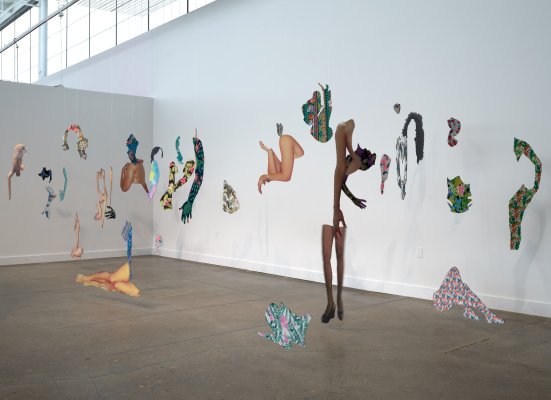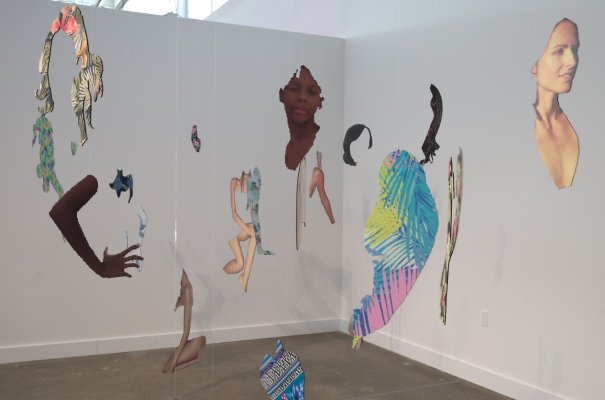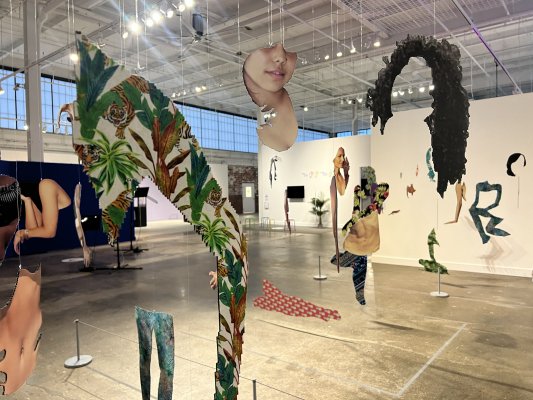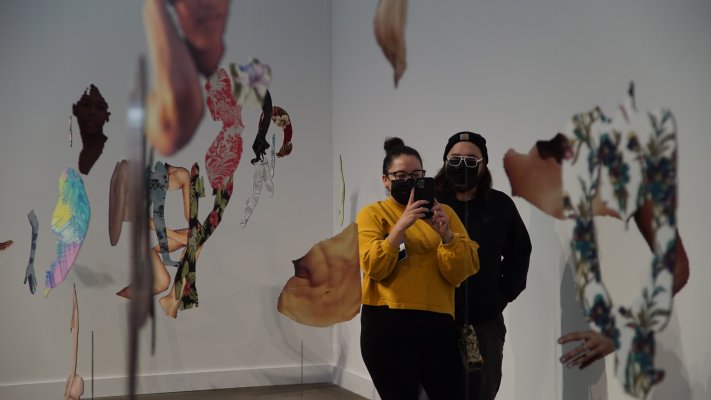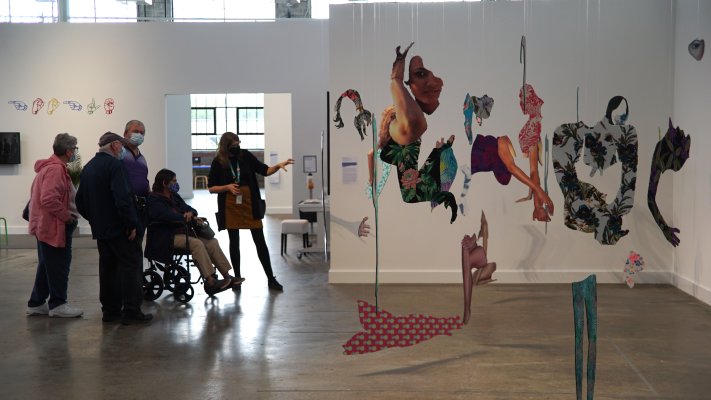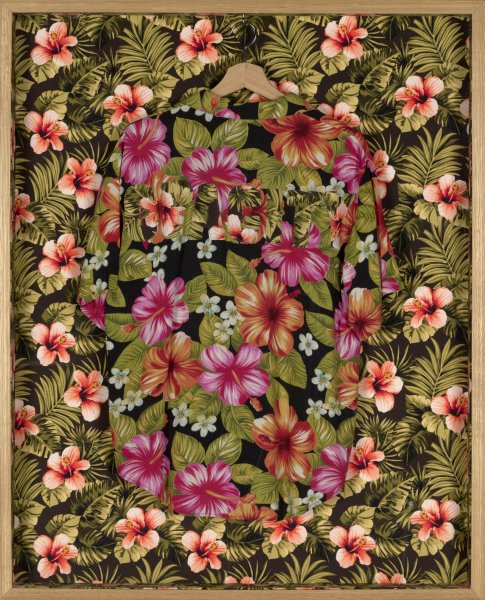#dominicanwomengooglesearch, 2016
Digital prints on Sintra with fabric backing
Courtesy of the artist
“What I want people to take away from this work is the idea that identity is not fixed, that it’s not stereotypical and is always changing and recombining. I was also thinking about my own body. As I move around space, as I move in between places, the perception [of my body] shifts, and my own experience shifts in space.”
—Joiri Minaya
As indicated by its title, Joiri Minaya (she/her/hers) made this work by using Google to search for images of Dominican women on the internet. The top results were of young, attractive women, many with dark skin, scantily clad and posing suggestively for the camera. These results reflect stereotypes about “exotic” women from this Caribbean island, and the sexualization of Black and Latinx women more broadly.
Minaya compiled these images—some of which bear watermarks from the websites that posted them—and digitally cut them into pieces, isolating their body parts in a way that recalls the act of fetishization. She printed these parts on PVC boards at human scale, cutting them out along the edges of their enlarged pixels. They are backed with “tropical print” fabrics (like the kinds used in “Hawaiian” shirts), underscoring how the identity of Dominican women today remains tied to the legacies of colonization and tourism. As they hang from the ceiling like a children’s mobile, the cutouts slowly shift their position, creating a disorienting maze. Moving through and around the work reveals that our identities are never really as stable as stereotypes (or databases) make them seem, and that the algorithms that now shape how we see ourselves and each other only produce fragmentary pictures of reality, enacting a kind of algorithmic oppression.
The Albright-Knox thanks Megan Woloszyn and Xanthe John for contributing materials for the fabrication of this work.

